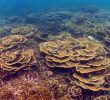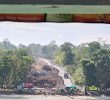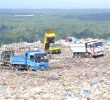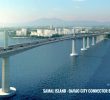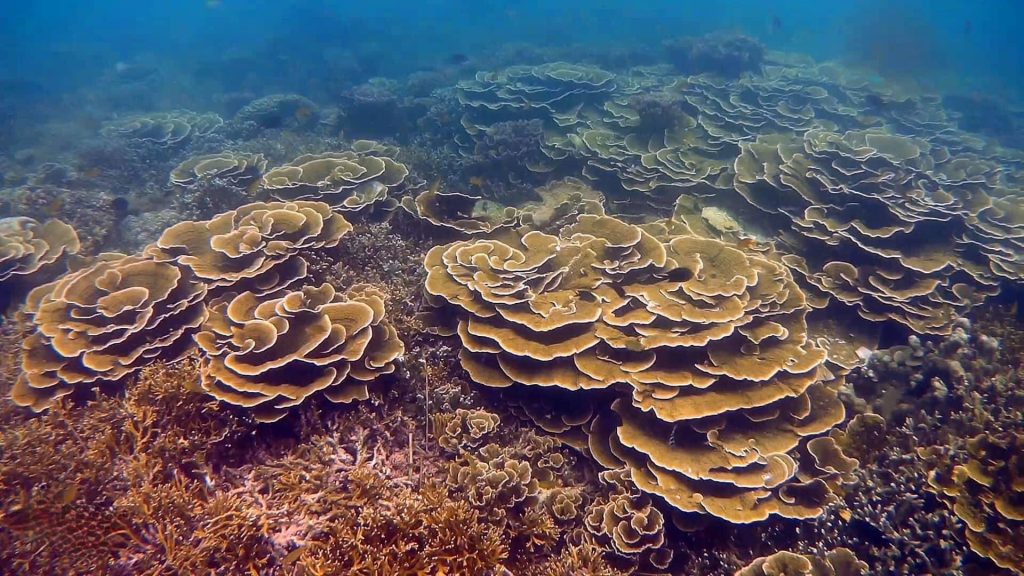
DAVAO CITY, Philippines – As Davao City has seen infrastructure projects booming in the past years, environmental concerns have been raised. This year, these are the issues Davaoeños should look at.
Waste-to-energy incineration project
Davao City is facing a waste crisis, as the city’s sanitarily landfill in Brgy. New Carmen has exceeded its capacity and has accumulated nearly 1 million tons of garbage since 2016.
In response to this problem, the Davao City Government plans to build a P 2.5 billion waste-to-energy (WTE) facility in a 10-hectare agricultural land in Biao Escuela in Tugbok District. The local government sees this as a ‘long-term’ solution’ by burning non-biodegradable wastes and converting them to energy.
The plan was proposed in 2018 but has yet to seek approval from the national government. Recently, the Davao City Councilor through Councilor Tek Ocampo filed a resolution seeking a counterpart funding worth P3.486 billion for the construction of the incinerator plant.
Environmental groups have raised concerns that the project would only worsen the climate crisis by burning plastics. This move contradicts national laws such as the RA 8749 or the Clean Air Act, which prohibits incineration; RA 9003 or the Ecological Solid Waste Management Act, which promotes more environmentally sound waste management solutions; and RA 9513 or the Renewable Energy Act, which excludes non-recyclable and non-biodegradable waste in its definition of renewable energy resources.
READ: Green groups say city’s waste-to-energy project not a solution
The Plastic Free Davao also raised concern that the burning of plastics will affect the health and environment of 20 barangays in the 10-kilometer radius of the proposed site.
READ: Envi groups urge local council, candidates to stop Davao waste-to-energy project
READ: STATEMENT | Paglaum Ecology Network (PEN) on Davao City’s Waste-to-Energy (WTE) Incinerator Project
READ: OPEN LETTER | Waste-to-Energy incineration is NOT a REAL solution
READ: Green groups’ silent protest in city council confronted by police
Davao-Samal bridge
The construction of a bridge to Samal has long been planned for decades but is now happening. The China-funded bridge project, estimated at P23 billion that covers 4.2 kilometers, had its formal groundbreaking in late October led by President Ferdinand Marcos Jr with Chinese ambassador to the Philippines Huang Xilian, Vice President Sara Duterte, and Davao City Mayor Sebastian Duterte.
Public opinion seems to favor the construction of the bridge, as the ferry system has not been able to cater the influx of tourists to Samal Island’s various resorts.
But environmental groups and a resort owner are appealing to change the landing site for the bridge, as it affects the 7,500 square meters (80,729-square-foot) Paradise Reef. The reef acts as a natural defense against storms as well as sea level rise.
The Rodriguez family, who owns the popular Paradise Beach Resort, questions the transparency of the project as there was no consultation with the public and resort operators.
The bridge landing site, he said, was changed from a vacated shipyard to the portion of Costa Marina Resort which the Rodriguez family also owns.
An online petition has been launched to support the call to realign the Samal bridge to protect the coral reefs.
Quarrying and siltation of Davao rivers
Quarrying operations within rivers have been a concern in the city as unregulated and illegal quarrying has created siltation of rivers.
In 2019, a study conducted by Interfacing Development Interventions for Sustainability (Idis) on the environmental impact of sand and gravel quarrying in Davao City shows heavy siltation problems due to quarrying.
As of September 7, 2022, there are a total of 113 approved quarry permits in Davao City according to the Mines and Geoscience Section of the City Environment and Natural Resources Office (Cenro).
Most quarry operations are on sand and gravel with 86 permits, followed by 23 for earth fill, and four for limestone. A total of 63 are allowed to operate along the Davao River, 20 along Lasang River, two along Matina River, and one along Bayabas Creek.
Mayor Sebastian Duterte issued Executive Order (EO) No. 54 in October 2022 forming an Inter-Agency Task Group to address the concern. Although the city government has made a previous task group to monitor the quarrying operations in 2020.
READ: ‘Long overdue’, envi group says on new task group to monitor quarrying
IDIS has called for a moratorium on sand and gravel quarrying and a study on the current situation of the Davao River to determine the impact of quarrying operations and rehabilitation in the area.
READ: Envi group pushes green spaces, quarrying cap in Council’s climate change plan
Preserving the home of Philippine Eagle
Green groups in Davao City launched a petition to protect Mount Makabol-Alikoson Conservation Area (MMACA), a habitat of thousands of flora and fauna which includes the critically endangered Philippine Eagle and other avifauna, mammals, reptiles, amphibians, invertebrates, and sapling vegetation.
The environmental groups urged the government agency to cancel allowing the cutting of trees within the MMACA not only to save the Philippine eagle’s nesting area but also to secure the community’s lifeblood.
“The MMACA is an 8,819-hectare ‘Conservation Area’ which supports the lives and livelihoods of over 6,000 residents of Barangay Salaysay in the uplands of Davao City. The natural resources of the MMACA have also sustained the Indigenous Obu Manuvu ways of life and culture since time immemorial,” said Sustainable Davao Movement. (davaotoday.com)
davao city, Davao-Samal bridge, philippines, WTE project
